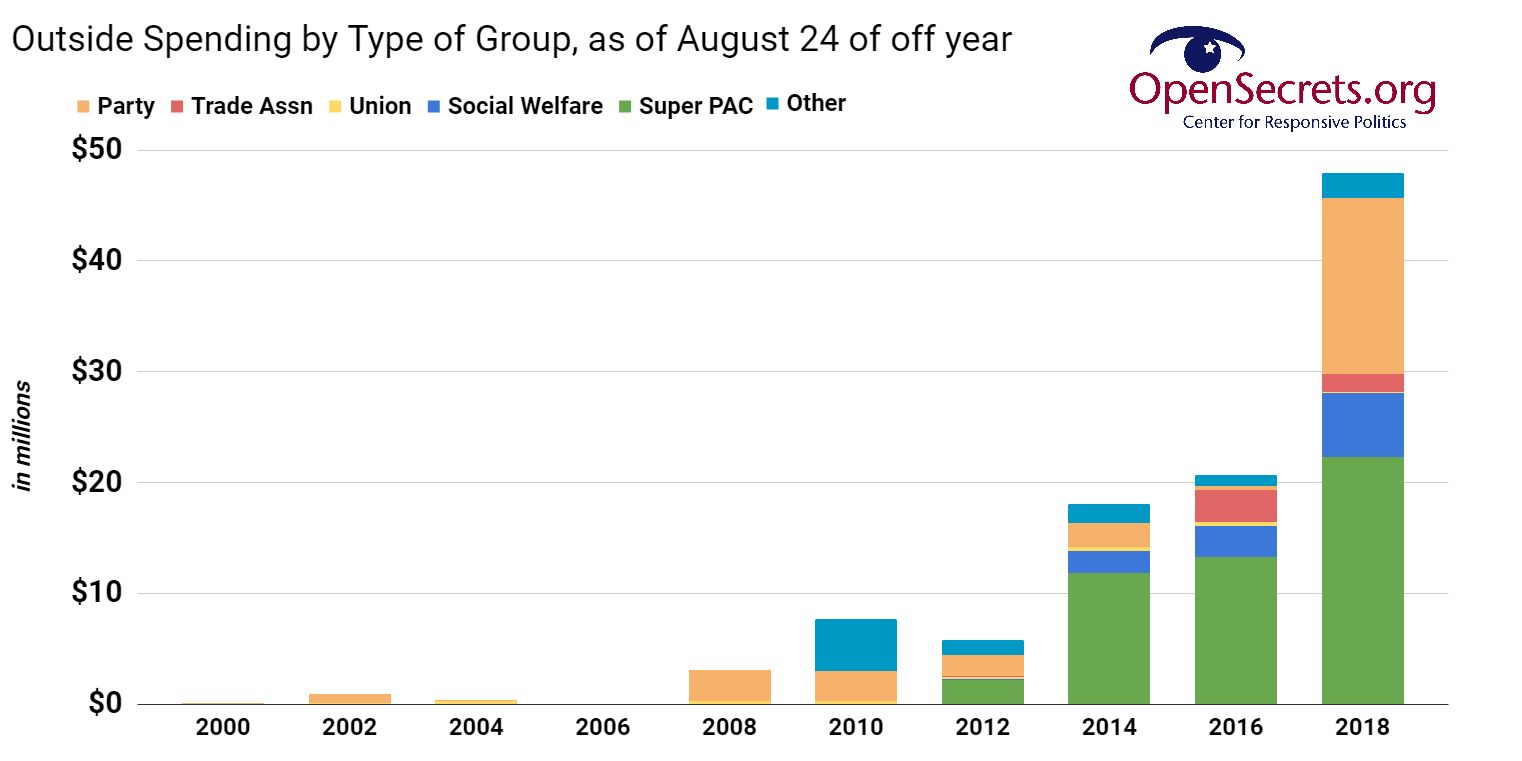Dark Money Set to Double in 2018 Election

The words “campaign finance reform” saturate the airwaves every election season, but is this really something we need or just another talking point? If campaign finance reform is so important for conservatives and liberals alike, why do we have so much trouble implementing it?
If you believe that elections can be bought with enough money, it becomes clear why so many folks dislike our current methods of funding political campaigns.
Special interest groups are allowed to contribute large amounts of soft money to campaigns, which manifests in the form of partisan political advertisements. The result drives away voters from both sides of the aisle and weakens our democracy.
Citizens United Paved the Way for Election Turmoil
In 2010, the US Supreme Court handed down their decision in Citizens United vs. Federal Election Commission. By making it legal for corporations and unions to spend unlimited quantities on political campaigns, Citizens United created the mess we have today.
The ruling did not affect how individuals can contribute, however. Caps on individual direct contributions to a campaign remain extremely low, too low for candidates to even sustain a campaign using this type of funding. Hence, political action committees, or PACs, were created.
PACs are organizations that bring contributors together to generate money for a political campaign or cause.
PACs can promote a cause and accept donations. They can also funnel money to campaigns. If a PAC gets large enough, there is no limit to how much money it can contribute to a political campaign. This is called a super PAC.
These super PACs can donate nearly unlimited quantities of soft money, and donations often take the form of issues-related ads. Many PACs choose not to divulge who their members are, and when they don't, soft money becomes dark money.
Where Does Dark Money Come From?
Dark money might be donated from any of several places, but non-profit organizations are a favorite vehicle for political contributors that don’t want to be recognized.
It is important to note that "dark money" refers to spending from 501(c)(4) organization, which includes genuine social welfare groups that may be giving to a political cause they feel is vital to their mission.
However, there are also organizations that abuse their tax-exempt privileges, and depending on the state, limited liability corporations can also function as political contributors that are not required to divulge information about the people backing them.
During the 2012 campaign season, more than $300 million in dark money went to political promotions that promoted the election or defeat of a specific candidate.
According to OpenSecrets.org, as of August 24, spending by outside groups for the 2018 elections reached $48 million -- a record for that point in an election cycle.
One chart shows that money from groups classified as social welfare organizations more than doubled the amount spent at this point in the 2016 cycle.

Both Democratic and Republican candidates have been shown to accept help from dark money contributions, but the sum of dark money contributed to Republicans is roughly eight times that of the amount contributed to Democratic candidates.
Doing the Democratic Thing
You might be thinking “in that case, this is just a liberal agenda to eliminate funds for the competition,” but dark money can misconstrue the message of candidates on both sides.
Is winning an election based on a message that isn’t yours really an example of democracy in action?
The answer is an obvious “no,” but current campaign finance laws don’t provide other means for candidates to generate funds, which is why recent elections have suffered from ubiquitous PAC-funded ads preaching the same oversimplified messages.
When this happens, people who vote make their decision based on a fraction of the real issue. More often than that, people don’t vote at all.
What is the Solution?
Different ideas have been floated to replace the non-functional system we have now, but part of the reason campaign finance continues to be an issue is that it’s difficult to get right.
Some people believe the best policy would be to remove the limits for individual contributors and return things to the way they were 200 years ago.
That would make contributors accountable, but it would also have the potential to let people buy elections on their own, which is no better than the situation we have with today’s super PACs.
What is clear is that the ambiguity should be removed from the system. Voters have a right to know if a corporation or individual is bankrolling a candidate’s campaign.
How can we call our system democratic when we limit the information people are allowed to inform the way they vote?
Photo Credit: Elena Yakusheva / shutterstock.com



